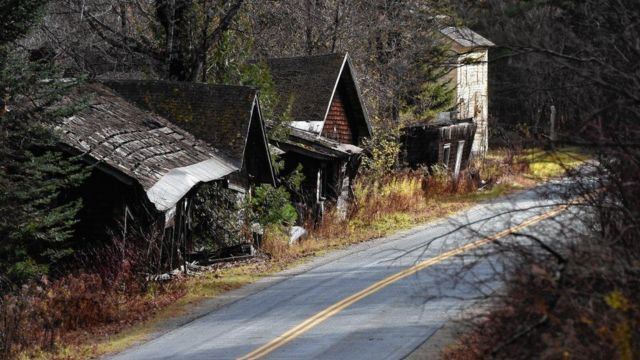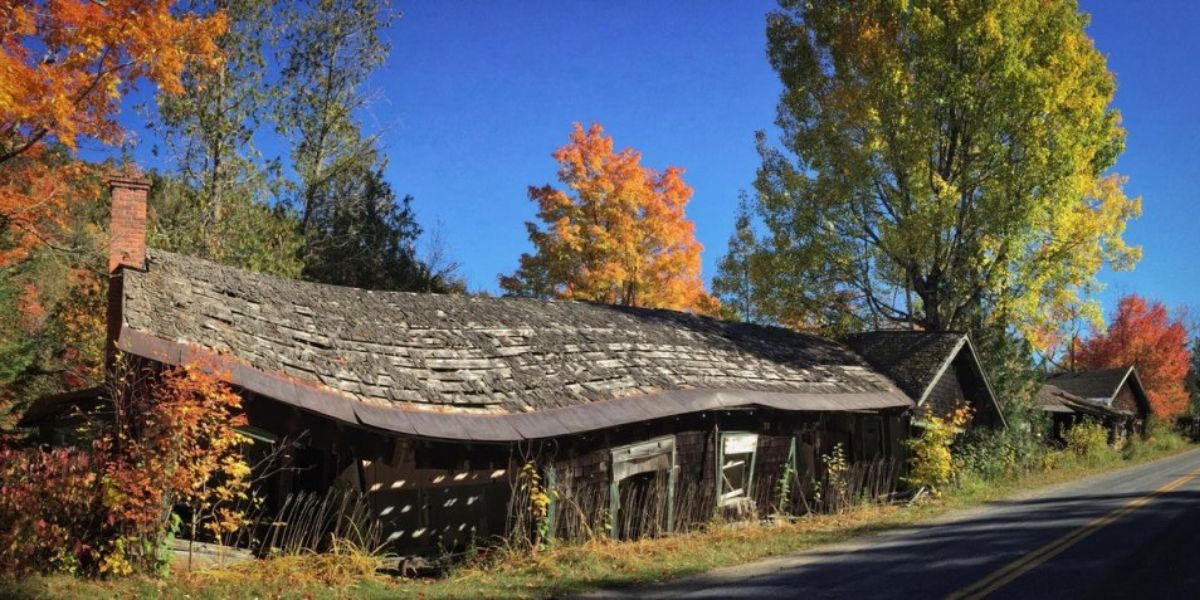New York, a state that is frequently associated with busy cities and never-ending activity, has a lesser-known side that, through its abandoned ghost towns, whispers tales of the past.
These towns, provide a rare window into a bygone era and entice the inquisitive to investigate the historical artifacts left behind. Come along with us as we explore the historical landscapes and reveal the secrets and memories woven throughout the very fabric of New York’s abandoned communities.
Jones Point
Jones Point, once a hamlet situated to the east of Bear Mountain State Park along the river, hosted the Jones Point Chemical Weapon Research Laboratory during World War I. This facility conducted experiments involving mustard gas, liquid propellants, and incendiary weapons.
Presently, Bear Mountain State Park has reclaimed the abandoned town, offering numerous trails, historic structures, and some ruins for urban explorers to explore firsthand.
Pottersville
Established in 1799, this historic town near Kingston faced a significant setback in 1927 due to a devastating flood. Following the flood, a tragic incident occurred as a man murdered his family before taking his own life.

Visitors to the town have reported eerie sounds and the sensation of being watched during nighttime. While navigating the area, take a stroll along Lundy Road in the Vernooy Kill State Forest to observe the remnants of abandoned buildings.
When exploring Pottersville, it’s advisable to wear sturdy shoes and carry an ample water supply. The route to the town is challenging, with the best access being through hiking or biking.
Read More: Illinois’ Haunting History: The Top 5 Ghost Towns Revealed
Timbuctoo
In the 1850s, New York law mandated that African Americans needed to possess a minimum of $250 in real estate to be eligible to vote.
To navigate around this requirement, wealthy abolitionist Gerrit Smith took action by dividing his expansive 120,000 acres of land into 40-acre parcels, assigning ownership to more than 3000 free African Americans.
Regrettably, families migrating from urban areas to Timbuctoo struggled to clear the thick forest and sustain themselves on the land.
By 1855, nearly all the town’s residents had relocated, turning Timbuctoo into one of the most distinctive ghost towns in New York. Unfortunately, today, very little remains of Timbuctoo beyond the stories we now hold.
Read More: Ghostly Echoes: Ohio’s Mysterious Ghost Towns and Their Untold Stories
Tahawus
This deserted village is situated in the uninhabited northern part of the Town of Newcomb, in Essex County. Its origins trace back to the 1800s, providing a captivating glimpse into the lifestyles of early American settlers.

The population mainly comprised German and Italian residents, with many locals gaining recognition for their proficiency in woodworking and blacksmithing.
Presently, campgrounds and residential homes occupy the area where the town of Tahawus once stood.
Read More: What Led to This Ohio City’s Unfortunate Status as the Worst to Live In
Jayville
Jayville, situated in the southwest of St. Lawrence County, boasts several historic buildings and has a rich history as a former active mining town. Established in 1850, the town relied on mining until 1892, after which it sustained itself through railroad traffic and the sawmill industry.
In 1914, Howard Hughes attempted to rejuvenate the mines in Jayville but faced challenges, including flooding, which ultimately thwarted his efforts.
Despite spending three years attempting to pump water out of the old mines and having high expectations for discovering a significant ore deposit under the Twin Ponds, Hughes was unsuccessful.
Today, the sole remaining structure is the former train depot on Jayville Road, and the town has largely transformed into a ghost town.
Read More: Haunting Heritage: Discovering the Secrets of 5 Ghost Towns in Missouri
To Conclude
The abandoned ghost towns of New York, such as Tahawus, Jayville, Timbuctoo, Jones Point, and Pottersville, remain like quiet sentinels, providing a window into the state’s rich and varied history.
Every town has a distinct history, ranging from Jones Point’s scientific discoveries to Timbuctoo’s African American citizens’ hardships and tenacity.
We are reminded of the transience of human accomplishments and the importance of historical preservation when we examine these relics from bygone ages. Through historical analysis, we may create a future that is more knowledgeable and compassionate.












Leave a Reply